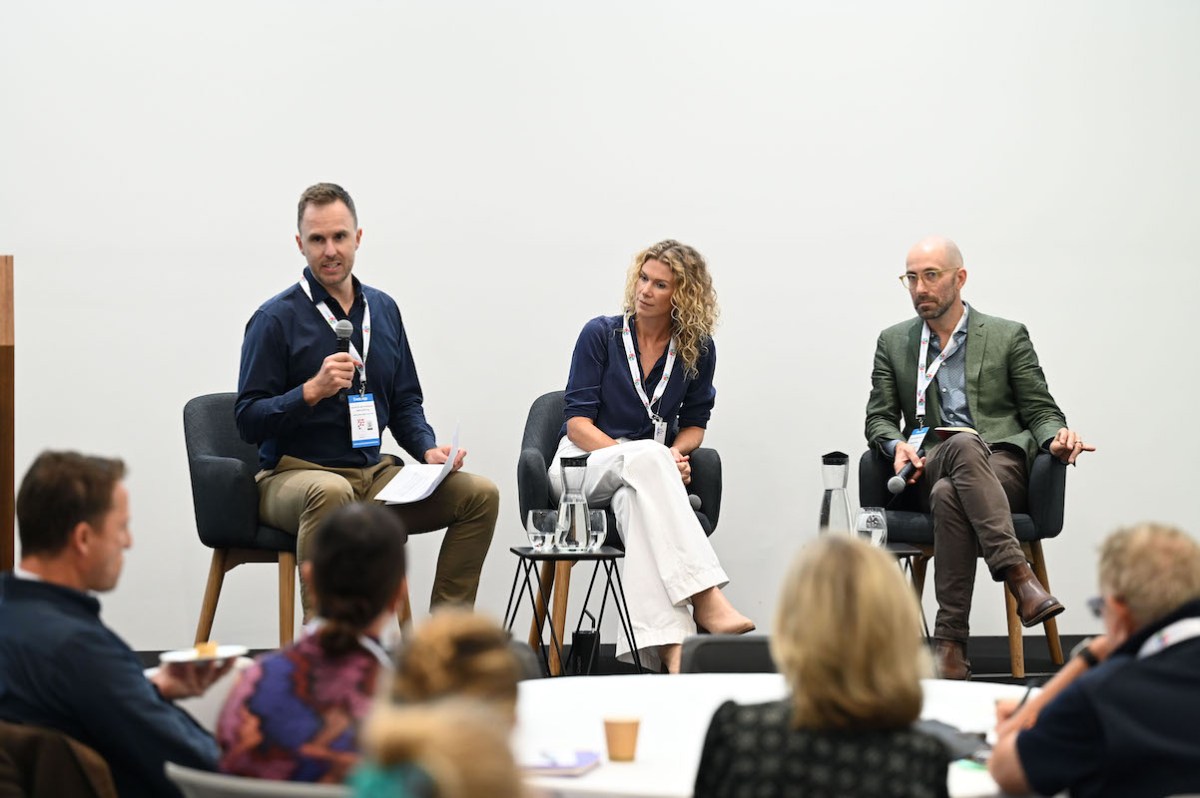Charlotte Connell is Director of Climate Tech Ecosystems at Climate Salad
The Impact Investment Summit tackles the big trends, topics and discoveries happening here and across the globe helping to make impact investing mainstream. This year, in its seventh iteration, a new topic was introduced, Communicating Impact.
I was incredibly honoured, humbled and nervous to be part of the panel with the impact guru himself John Treadgold and climate change science communications aficionado Fergus Pitt. But why would a bunch of portfolio managers, investors, startups and banks be interested in a topic like this?
Because if we are to move impact investing into the mainstream, we need to be good at this, really good at this. Here are my five key tenets for communicating impact that I observed from the discussion and ongoing chats after.
You’re not communicating impact, you’re a change agent!
Those charged with the duty of communicating impact are also tasked with the responsibility of being change agents, to make impact mainstream. It’s not enough to simply converse with the already converted, it’s our job to transform hearts and minds and eventually dollars into the possibility and opportunity of impact investing.
But how do we change people’s hearts, minds and strongly held beliefs especially if they only want a spreadsheet?
First, you need to understand your audience and meet them where they are
Not everyone has travelled as far down the climate, impact, regenerative road as you have. Meet them where they are, understand what motivates them and what they value. Not everyone can comprehend what a platypus is, until they see it, so show them.
It’s through storytelling that you can win over hearts
I learned this lesson living in Vanuatu, I had none of my usual tactics and tools to deploy for communications. With no tweets, no media releases, no internet, more languages spoken per person than anywhere on earth and less than 10% of the population being able to read, I needed to deconstruct communications to its most basic form: storytelling.
From village to village I learned that their most valuable currency is storytelling. There’s even a word for sitting down and exchanging stories: Storian.
But you must also have facts and data to back it up and validate those stories, to win over heads
As John mentioned, storytelling can sound like a fairytale or fable with a moral we must extract rather than a truth we can learn from. We need data, facts and figures to give our stories credibility and validate the narrative we’ve crafted.
Your aspirational ambitions are inspiring but is there data to back-up what you’re saying?
Hope is more powerful than fear, let’s motivate action with the possibility and opportunity
Working in the climate impact space you need a healthy dose of the Stockdale Paradox. You must maintain unwavering faith that you can and will prevail in the end, know that we will solve the climate crisis, and at the same time, have the discipline to confront the most brutal facts of your current reality, not hide from the facts that our world is on fire.
But as change agents, we must motivate action by telling stories about the opportunity. For example, in Climate Tech I rarely share stories of the plight of our Pacific Island friends, or the sea walls Torres Strait Islanders are making out of coconut husks and milk crates, instead I highlight the immense opportunity in jobs and growth that this sector represents.
From the Climate Salad Industry Report, we know that the emerging sector raised $1.4B in capital, and half of that came from overseas investments, the sector also generated more than 4,000 jobs. In the innovation sector, you must always be solving a customer problem first, climate tech just so happens to also be solving the greatest challenge of our time too.
In summary, stories have the power to change the world, because they can change us! But those stories must be relevant and engaging to their audience, and the stories must be backed up with data for validation.
Special shout out to Dr. Jodi York too for her contribution to the movement and the discussion!

